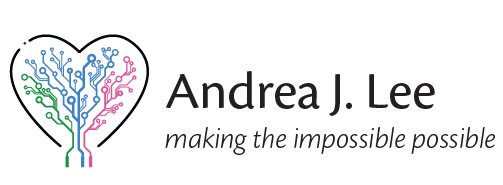“Listen.
To the song here in my heart
A melody I start but can’t complete.
Listen.
To the sound from deep within
It’s only beginning to find release.”
— Beyoncé
Is it too soon to talk about life post-pandemic? It feels like it, doesn’t it?
And yet, we’re beyond a certain ‘middle of the pandemic’ sensation, too, am I right? Crikey, thank goodness for that! But if we’re not yet post-pandemic, what do we call where we are now?
Ahhh, I know! Is it a little like shoulder season when it comes to tourism?? It’s not ‘peak tourist’ season anymore, and it’s also not normal either, right? Things are a little less intense, there’s a sense relief ahead >> yep, that feels like a good description for where we’re at:
Welcome to Pandemic Shoulder Season.
A lot has changed in the world in the last 13 months, no doubt, but that’s a topic too ambitious even for me! No, what I’d like to explore today is what I perceive has changed that impacts those of us who do some form of coaching. What’s worth noticing for trainers, coaches, and other leaders who’ve persisted – through one of the most life-altering events this generation will experience – in the commitment to help humans fulfil their potential?
In a single sentence, I think the answer is:
The pandemic has taught us to listen better.
With so many people living through similar fears…
What with the collective grief and suffering of losing loved ones…
The pain of lost revenue for business owners…
Lost birthdays and get-togethers for everyone…
All of this has gifted us with an increased ability to hear each other’s circumstances and empathise. We relate to each other more because we’ve had to be ‘in this’ together.
Also, as we notice other people going through their trials, we’ve become more aware of where we’re lucky. We’re less ignorant and more conscious of the privileges that afford whatever comfort we’ve had. With everyone’s situation on the news, we see ourselves better relative to other people, and we can hear what’s true. These are some of the gifts in dirty paper that come with pandemic shoulder season.
But what has listening better taught us about the work and projects we care about as entrepreneurs and leaders?
Three simple things that, in my view, have a LOT to offer as we make plans for the back half of 2021. Have a look – diving deeper into the links if content outside your norm would enrich your brainpan – and perhaps pick one of the themes to carry into your next brainstorming meeting:
- We’re lonely.
Remember when seemingly overnight, almost all of our social outlets converted to Zoom? Today, the majority of us consider a website of some kind to be our favourite go-to place to relax. In fact, a lottttt of people now hang out online while they eat lunch, just chatting, and even while they sleep. And yes! People are paying to do these things, en masse. There’s no other reason for the spike in this kind of activity than loneliness.
As you think about how to deliver value in your next project during pandemic shoulder season, you’ll almost certainly want to think less intellectually about it all.
Instead ask yourself, ‘How can I support people to feel less lonely, more themselves, and experience more of a sense of belonging – to the world but also to themselves?’
- We’re bored.
Specifically, this translates to wanting to have interesting things to enjoy, and not get overcommitted. Think snacking, or channel-surfing, and you’ve got it. Shorter offerings of single classes, single day online events versus longer ones, shorter contracts with coaches or trainers. In e-commerce speak, we’re talking about microtransactions.
Paradoxically, courses or programs that call for a longer commitment can boost their enrolment by showing how stimulating the experience will be and how readily the bigger experience can be chunked down. Ask yourself how you can write your enrolment copy so it highlights a variety of smaller activities inside the larger program.
Whether you’re creating shorter things like micro-classes, or your plan already has a longer program in it, factor in the fact that people are choosing to do things because they want to be entertained.
- We want to feel good.
Whether it’s re-watching our favourite shows, doing puzzles, playing games, learning a new craft or cuisine, we’re buying the things that make us feel good. Of course, there’s a lot to be serious about as we tackle big questions about public health, our future, and the safety of our families and communities. All the more reason that when we’re not being serious, we’re looking for fun that’s compelling enough to distract us.
As you seek to find clients, enrol into your next program, or create shippable products for your next season, don’t overlook the feel-good factor. I’m definitely someone who can be overly serious (just ask my husband!) but I’m learning a lot from students who tell me my wacky sense of humour helps them learn because they feel so safe.
Suffice to say this Pandemic Shoulder Season, we can contribute a lot by listening to people’s need to feel less lonely, less bored, and just feel good again.
“But wait, Andrea, what if I don’t feel like I’m listening well, or hearing the right things? How do I sort out how to listen better? I want to absorb what you’re saying above, but what can I do to develop better listening beyond that?”
This is one of my favourite questions and deserves a meaningful answer. Here it is from the heart based on what I try to do each day:
- Stop trying to listen only with your brain. In other words, give up trying to know things for sure. When you allow your world to have gaps in it – for things you don’t yet know – that’s when you naturally lean in and as a result, your hearing sharpens.
- As a coach, go beyond words with your clients. Start by pausing for longer before you speak. Ask your client to draw a picture or re-arrange objects to tell you the story of their biggest challenge. After your coaching session with your client’s permission, transcribe your conversation and make a word cloud with it, so you can see/hear what was said in a visual way.
- Freshen up your listening diet. Listen to TV or radio in a foreign language and try to decipher it. Choose Gregorian Chant or another foreign-to-you music for 5 minutes a day. Behold a dog who communicates using English words programmed to buttons she pushes. In other words, expand your listening palate.
- Above all else, cultivate your witness self. Listening is an act of observation, so if you can get ‘outside of yourself’ you’ll be able to hear yourself better. Feeling well heard by your own self is a distinct sensation of relief, intimacy and joy.
So listen to your inner self-talk as if it were a client of yours. Ask yourself to repeat yourself if you don’t understand. Be patient and don’t rush. Little by little as you learn to hear yourself accurately, you’ll cut through distractions and finally evict other people’s opinions from your inner landscape.
The Pandemic has helped us all listen better, and in this world that’s too often upside down, we can stand to listen even better still.
The good news is, listening is a skill that just like talking, can be honed. It’s well worth the effort because when we really think about it, we know it’s true: listening is an act love that can fuel all manner of change.
Got more ideas about how listening has played into your pandemic experience and how we can seize that advantage going forward? Hit reply to let me know, or feel free to comment.
Some things we simply cannot hear with our ears – no matter how cute or huge they are – which is why I’ve decided to teach again about listening with our hearts, starting with what we say to ourselves.
/ There’s an invitation I make in the very first class of the ‘How to Coach Yourself’ training that I’d like to share with you here. It’s this:
Would you be willing to try a new definition of coaching? After all is said and done, coaching is simply organised conversation. We are all – at any given time – in a conversation with ourselves, and that conversation may or may not be very organised. Plus, far too often the conversation we’re having with ourselves isn’t very supportive and can be downright mean. THAT is crux of all of this.
When you learn to actively and generously coach yourself, you learn to really hear yourself, and when you REALLY hear yourself, everything – and I really mean everything – gets better. Your actions, your results, your sense of peacefulness, purposefulness, all of this and more, can get better. And when YOU get better, the world gets better, full stop. /
If that sounds of interest, good timing! Because the May 2021 cohorts of ‘How to Coach Yourself’ are now open for early enrolment and you are invited.
Be sure to click the ‘more info’ button below soon, so you can take advantage of the $100 savings available now for the first 15 people to register.
Oh and yes, this time, I’ve made two sections available (10am and 330pm pacific) which I hope helps if you have a tricky schedule, or a non-North American time zone!
Counterculture, innovative, fun and lucrative – I’m honestly humbled and excited to get together in the fertile window of time that is Pandemic Shoulder Season.
This will be the last open session of this course in 2021, and I’m ready to teach my face off, so if you’re ready to learn, we’re in for a treat. 🙂 Together we can create space for all the questions you’re contemplating for 2021.
”This course is the perfect self-empowerment tool for when you want to increase your awareness and action. Andrea is a masterful and multi-layered teacher who embodies what she shares.
There isn’t another person on the planet who could offer this course in this most-effective way.” — Paula G, The Paula G Company
”Andrea made the material so relevant to each of us with drop in practice sessions and helping us customise questions specifically for ourselves. Plus her humour made class so much fun!
Best self care investment I’ve made in a long time.” — Jude Eastman, Stirring the Spirit Within
”To actually be encouraged to coach ourselves, to trust our own wisdom, and to make ourselves important enough to put our self-coaching sessions on the calendar is simply wonderful.
The premise of the whole program was just REFRESHING! I am deeply moved.” – Denver Hudson, Advanced Fitness Coach
Got questions? Always happy to listen and help. Just hit reply and question away.
Photo credit top to bottom: Alex Hyner via Instagram and kyle smith on Unsplash


